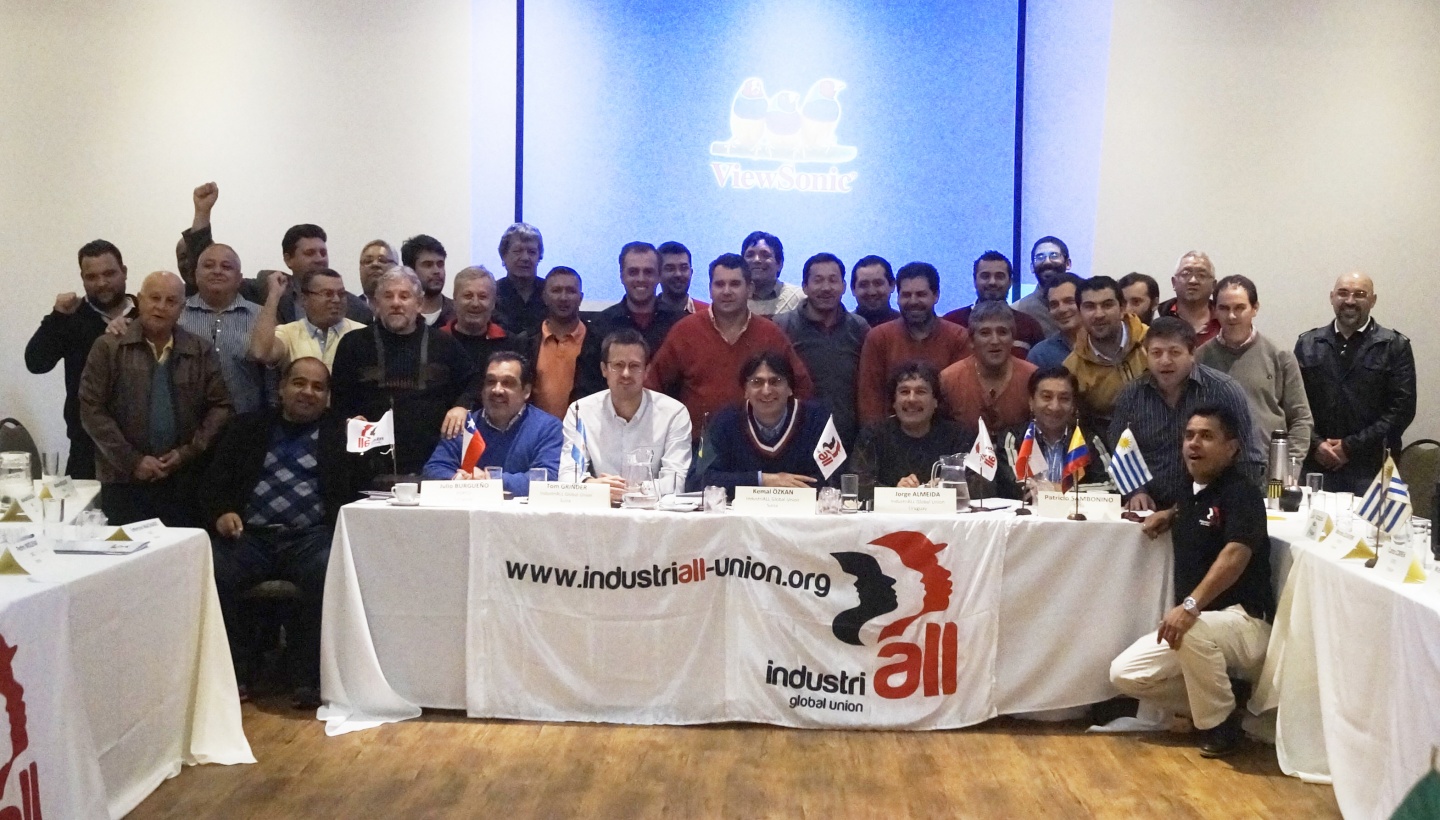2 August, 2016More than 30 leaders of trade unions in the Latin American paper and cellulose industry shared ideas on forming a federation that would help to build networks and strengthen the industry in the region.
“We want to form a network of workers in Latin America, with no political barriers. We want to strengthen the paper sector and improve workers’ rights by promoting unity and improving organization wherever we can. The idea is to protect, combine forces, grow and encourage participating unions to affiliate to IndustriALL,” explained Washington Cayaffa of FOPCU, Uruguay.
Paper and cellulose sector trade unions affiliated to IndustriALL Global Union held a regional meeting in Montevideo, Uruguay on 26-27 July. The objective was to share experiences and update each other on the situation in the sector in countries that included Argentina, Chile, Brazil, Uruguay and Colombia.
“We're holding this meeting at a very important time for the region. The world is in crisis and the trade union movement is fighting to mitigate the effects of that crisis. Capital and many governments intend to remove or modify workers’ rights in order to reduce the impact of the crisis,” explained Jorge Almeida, IndustriALL regional secretary, at the start of the meeting.
Representatives from Brazilian trade unions explained that although the cellulose sector in their country is not in crisis, they were ready to help countries that are having problems. They also invited unions to join the Federation of Paper Industry Trade Unions in Mercosur (FESPAM), which was formed in 1986. They invited all unions in the region to join, even if they are not in the Mercosur trade bloc. The federation aims to bring unions together to address problems affecting all workers, such as precarious work, low pay and outsourcing.
“The cancer of outsourcing is a global problem. Fortunately, in Latin America, we are able to organize trade unions and grow. We must form networks so that every union in every country makes as much progress as possible,” said Arturo Cajamarca of SINTRACARCOL, Colombia.
The unions present said they wanted IndustriALL to play a major role in the cellulose sector, which is becoming a leading industry in the region. Tom Grinter, a research officer at IndustriALL, representing the global union’s head office, said the idea is to unite and work together to achieve improvements for all.
The regional representative of the Finnish foundation SASK, Patricio Samborino, emphasized their support:
“In Finland, the paper and cellulose industries are the second and third highest income earners for the country. The sector is very important for the whole country. We cannot let ourselves be isolated, we have to work together just like the companies do. We cannot get left behind. The idea is to create networks inside a single structure that unites all of us. The idea is to fight for workers’ rights and to propose to governments a new way of developing the sector,” said Patricio.
The workers formulated an action plan to improve communication between participants in order to strengthen the trade union network and promote solidarity. All those present emphasized the importance of taking action to combat the problems that face workers in the sector, for example, outsourcing and precarious work.
Participants said that letters to companies and governments expressing solidarity and support for workers is effective but said it is not enough. They said there is a need to strengthen international solidarity by improving communications through networks that have a strong commitment to global action.
They decided to draft letters to the prefect of Coelho Neto, in the state of Maranhão in Brazil and the governor of Maranhão, Brazil, in support of workers employed by Agrimex SA and Itapagé SA. These workers have been on strike for four months because the companies refuse to pay the wages and benefits they owe them.
IndustriALL’s assistant general secretary, Kemal Özkan concluded:
“When we have a dispute, particularly in the paper sector, we need to think hard to try and anticipate what action we will need to take to overcome potential challenges. It is also important to set in motion effective communications. We must be able to use technology and make employers and politicians pay attention to us, because we need to interact with governments, political parties, and employers if we are going to have any influence on them.
“That is why these meetings are very important. It is essential to cooperate and create regional networks and participate in global networks. We need people to get involved in this process,” he said.




